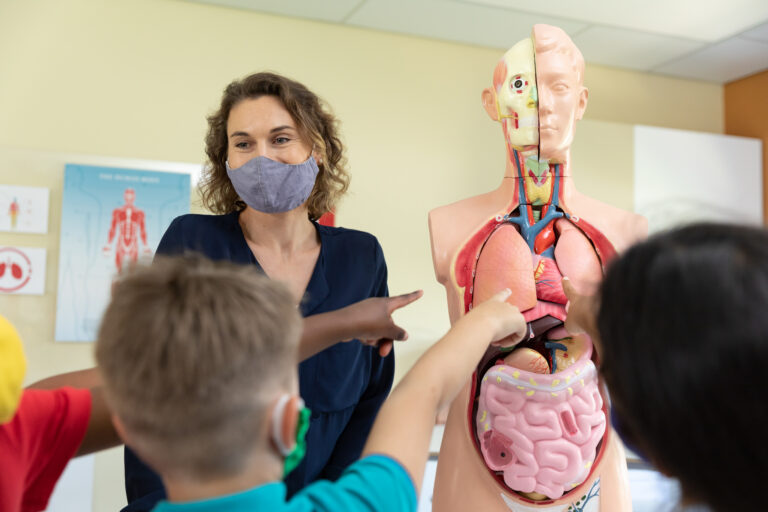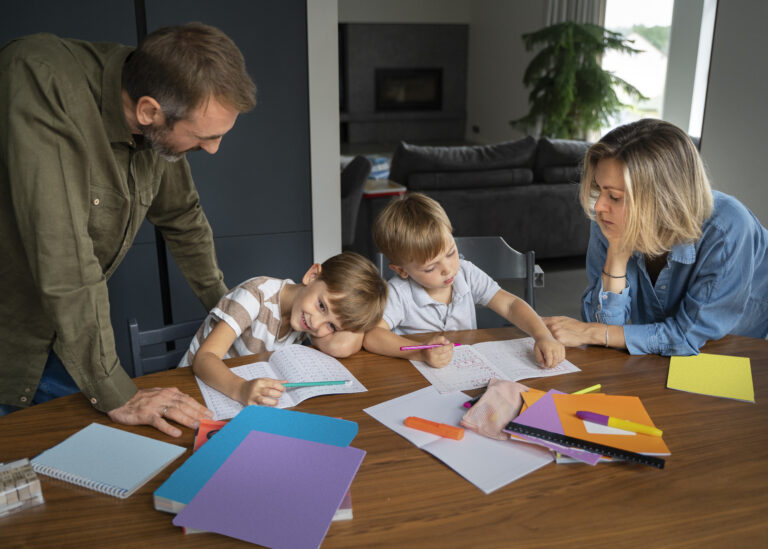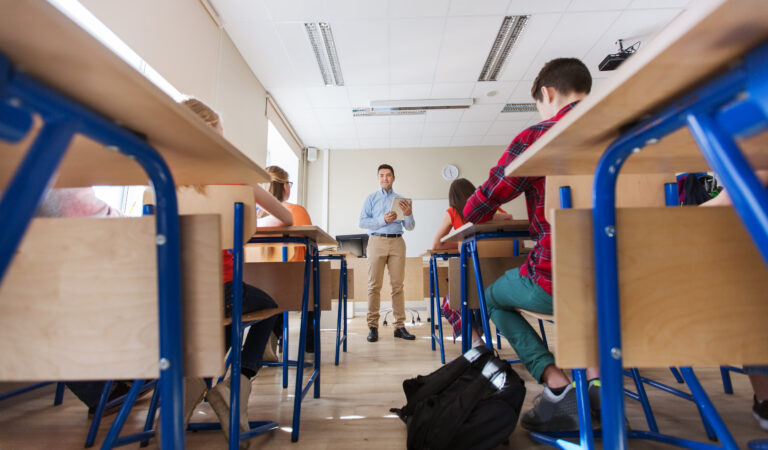A concerned parent contacted me with these great questions about bathroom privacy. The situation raised several issues related to modeling and teaching children some foundational lessons related to healthy sexual development.
Dear Puberty Lady,
My son is nearly three. Since he began potty training last summer, he is not being super private about going pee but would ask for privacy when he pooped. He would sometimes do this when he peed too, and we totally respect his bathroom privacy and shut the bathroom door almost all the way.
He started daycare in the fall, and we’ve always felt weird about their bathroom policy. The classrooms have bathrooms in them, and the door is always open. The cameras do not show inside the bathroom, but they reveal that sometimes there are 3-4 kids in there! An adult is always in there as well if kids are in there.
But it bothers me a lot that he may want privacy, and then all these kids are looking at him. And boys and girls are in the bathroom together. I’m bummed I’m not there to answer the questions I’m sure he must have about seeing girl parts. I don’t like the system at all, but I don’t know what I think would be better.
What do you think about my thoughts? Are they appropriate? What am I missing? How can I support my son from afar? Any suggestions/advice about any of this would be great!!
Dear Privacy Promoter,
Thanks for bringing up this interesting dilemma. I know you want what is best for your son. As I’ve been reading and re-reading your questions about toilet privacy, several issues seem to be in play:
- Developmental stages
- Privacy
- Consent
- Policies
- Body parts
- How to talk about the situation at home
So, let me jump in and share my thoughts.
Developmental Stages:
Developmentally, three-year-olds are typically not very self-conscious about nudity; that comes later. They are curious about everything because that is how they learn. My specialty is children a bit older, and I have created these charts about the Ages and Stages of Sexual Development. For younger children, the Talk with Your Kids and the Teaching Sexual Health websites have some helpful information on age-appropriate bathroom etiquette and behavior.
Privacy:
It is important to teach young children the difference between public and private behaviors. Of course, toileting is a private behavior, right? In families, nudity and bathroom privacy are treated in a variety of ways. The important thing is not to shame children (or adults) about bodies or bodily functions. As soon as a child can wipe their own bottom and wash their own hands, they can toilet themselves. At that point, you can work with your child to figure out the best way to respect their privacy during toileting based on your family’s values and norms. Until then, it is wise to provide help and teaching and modeling.
Consent:
Having said that, it is vitally important that children are taught about bodily autonomy from birth on. They need to be taught about consent; that means they get to decide when and how their body is touched or shown. Of course, there are exceptions for diapering, bathing, and medical exams, but even then, the child needs to be told what is happening and offered choices during these events (e.g., would you like mom to take you to the bathroom, or dad?). If a child is bothered by sharing a bathroom with classmates, their wishes need to be honored. This is a protective factor that will guard them against abuse. If you want to read a book about bodily autonomy together, Everybody, Every Body! By Emmalinda MacLean is a gentle introduction that you can expand upon as you wish.
Policies:
Educational institutions have policies for everything! Some of those policies are guided by state-level policies; others are by individual schools. First, I would contact your state Department of Education’s Early Childhood Education department and ask them to describe the best practice or model policy for toileting in daycare centers. Next, I suggest that you make an appointment to talk to the school leader about their toileting policy. Ask for a copy. Ask about the rationale for having multiple children use the toilet together. Ask if an adult is expected to be present, etc. If your daycare is not following the state’s best practice standards or model policies, ask them to do so. If you are not satisfied with their responses, you can ask them to do something different for your child.
Body parts:
This is a great time to teach your child the medical terms or dictionary terms for all body parts if you haven’t already done so. Knowing these terms is a protective factor to guard against victimization. It also gives children the language to ask questions or report problems. Children of all genders need the language for all body parts. It is typical for children this age to be curious about body parts in a non-sexual way. For preschool-aged children, I recommend you read a book together. Who Has What? All About Girls’ Bodies and Boys’ Bodies by Robie Harris is a great choice.
How to talk to your child about the bathroom privacy situation:
Adults and children often experience situations differently. We look at the world through different filters. At a moment of calm togetherness, I suggest you talk with your child about daycare in general, and then ask specifically what happens when they need to use the bathroom. You can ask if they feel comfortable using the bathroom or if they wish anything was different. If your child doesn’t have a problem with the shared bathroom, and you are sure they are not being touched or abused in some way, the discomfort might be from your adult filters. However, if your child says they don’t want to use the bathroom, or they feel uncomfortable, it will be important to explore that and find a solution.
I’m afraid this has become very lengthy!!! I hope there are some helpful tidbits here for formulating an age-appropriate bathroom privacy plan for your family. I would love to hear what you think….and if you have additional ideas. Please let me know how this turns out. I hope you and your son arrive at a solution that works well for all!



